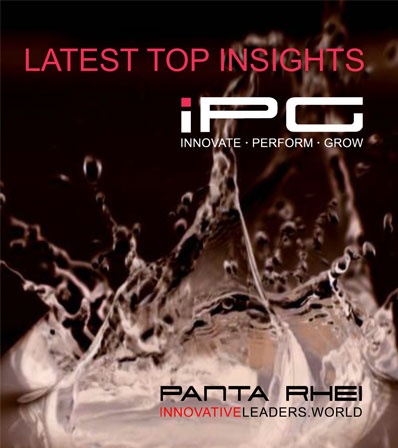The fourth "Industrial Revolution" is in full swing - with or without us. Industry 4.0 means a change in the entire value-added process, which relies on self-organisation and self-control¬ of systems and also offers more customer integration. The factory of the future and all associated functional areas along the value chain must be completely rethought. It is therefore obvious that, in addition to production, logistics, purchasing and SCM will also address the topic and become aware of how Industry 4.0 will influence and change the current organization, its processes and employees.
Industry 4.0 from a purchasing perspective
What does the purchasing department in Switzerland think about this? From May to October 2015, "procure.ch", the national professional association for purchasing and supply management, as well as the Swiss Logistics Network Association and the consulting firm IMP AG conducted a joint study to examine the sensitivity and willingness of purchasing to the topic of Industry 4.0.
The survey involved 254 buyers from upper and middle management levels in Switzerland. 68 percent-of them work in industry, 13 percent in trade and 19 percent in the service sector.
Rising demand
How much will industry 4.0 and the possibilities of digitalization change the industry from the buyers' point of view? More than two-thirds of the companies expect Industry 4.0 and the possibilities of digitization to change their industry strongly or very strongly.
Many companies perceive significant changes in their direct market environment. 74 percent of the companies feel an increased demand for individualized products, 72 percent feel an increased desire to make adjustments until shortly before delivery, and still 61 percent feel a clear tendency towards smaller orders. Obviously, many companies have been dealing with the possibilities of digitalization on the product and sales side for quite some time. Thus, many companies state that they are already able to do so today - to manufacture products that can be digitally networked (62 percent), provide information about the customer's use of the product (61 percent), are clearly identified (for example, through RFID technology) and can be assigned to individual customers (55 percent).
Sustainability
The intensive involvement of suppliers in product development is already common practice at most Swiss companies. Around four out of five companies confirm that they involve their suppliers in product engineering, in tests and validation of developed concepts and prototypes, and in the early phase of idea generation.
While more than 80 percent of those surveyed assess Industry 4.0 and the revolutionary developments of digitization as relevant to very relevant for the future viability of their own company, at the same time four out of five companies assess their current level of knowledge about Industry 4.0 and digitization as low to insufficient. This competence gap signals a clear need for action in the Swiss purchasing organizations to put the topic on the purchasing managers' agenda as a priority and to develop appropriate strategic levers and approaches as to how purchasing can accompany the digital transformation process of its own company on the procurement and supplier side in a targeted manner.
Digitalization strategy
Analogous to the pent-up demand for knowledge, only 20 percent of the companies have developed a digitization strategy for their own company, according to their own statements; 80 percent of them do not yet have a clear strategy for how they can pursue and implement the new possibilities of digitization within their own corporate strategy. Swiss purchasing organizations are still in the very early stages of dealing with the future requirements for purchasing induced by Industry 4.0. Only 5 percent state that they have systematically addressed the question of which new roles for purchasing will be created by Industry 4.0.
Induced roles in purchasing
Comparable surveys in the neighbouring country Austria come to similar results. Only 14 per cent stated that they were involved in the "Industry 4.0" strategy development. Just under 80 percent of the purchasing representatives believe that Industry 4.0 places high demands on the qualifications and training of buyers. In addition, 68 percent of those surveyed see a great need for change in terms of the organizational form and management structure in purchasing.
Conclusion: To this day, the strategy discussion in companies largely ignores purchasing. In response to the question as to which future requirements and roles in purchasing will be of great importance, the following role models and tasks in strategic purchasing in the future were confirmed -by a majority of Swiss companies, some of them by a clear majority.
Driver instead of Geared
The perceptions from science and practice regarding the impact on organization, IT use and competence focus overlap: product, process, people and IT will merge even more. And the management of internal and external networks will become the focus of competence.
The survey results confirm the high relevance and at the same time the strong pressure for change resulting from the Industry 4.0 trend on the purchasing of the future. So far, only a few purchasing managers have recognized this strategic change for themselves or have begun to initiate this transformation process in purchasing with concrete considerations or measures, and thus at the same time proactively support the strategic accompaniment of the digitization process in their own company on the procurement and supplier side.
Conclusion
In conclusion, Industry 4.0 will have to change purchasing in a sustainable way and take on additional roles. The associated qualification requirements are immensely high. In Switzerland, the transformation process in the wake of the "Industry 2025" initiative has only just begun. Although Switzerland has been attested a high level of readiness for Industry 4.0, within the German-speaking world it is about one to two years behind the concrete implementations in Austria and Germany.
Forward-looking purchasing organizations have the opportunity to be at the forefront of developments right from the start and to help shape the transformation process towards digitization as a driver and motor. This is a big difference compared to the change processes of the past (global sourcing, Kaizen, etc.), where purchasing was often more driven and only introduced changes relatively late and often under pressure from outside.
In addition, Purchasing has the opportunity to play a decisive role in shaping the new opportunities for building networked and integrative business models within the company from the very beginning. The value contribution that purchasing can make here is enormous. A proactive approach in purchasing is critical to success.
Next steps
The implementation of the Industry 4.0 potential lies in the hands of industry, trade and service providers. Evolutionary developments are by nature a bottom-up process. However, in order for these approaches to grow, the following steps are the responsibility of purchasing management:
- Sensitization from the environment: Analysis of trends and developments in purchasing 4.0 Reflection with the management team
- Inventory Purchasing 4.0: Analysis of the current status in your own purchasing department: strategy, processes, organization, services, qualification, technology, culture (question to be asked: where do¬ we currently stand?)
- Development of a truly future-oriented purchasing 4.0 mission statement
- Redesign of the value creation logic 4.0: Purchasing organization, processes and systems, buyer roles and qualifications
- The adaptation and development of new, innovative business models: Purchasing influences the establishment of new business models through an active role in technology and innovation management, through the establishment of value network partnerships and new approaches in cycle management.
Please explore our Digital Transformation and Value Chain & Supply Chain Management solution portfolio for more information.
This article was originally published by: KMU-Magazin.
Authors:
Carsten Vollrath and Professor Herbert Ruile
CEO and Senior Partner @ Swiss IPG Partners Group

















